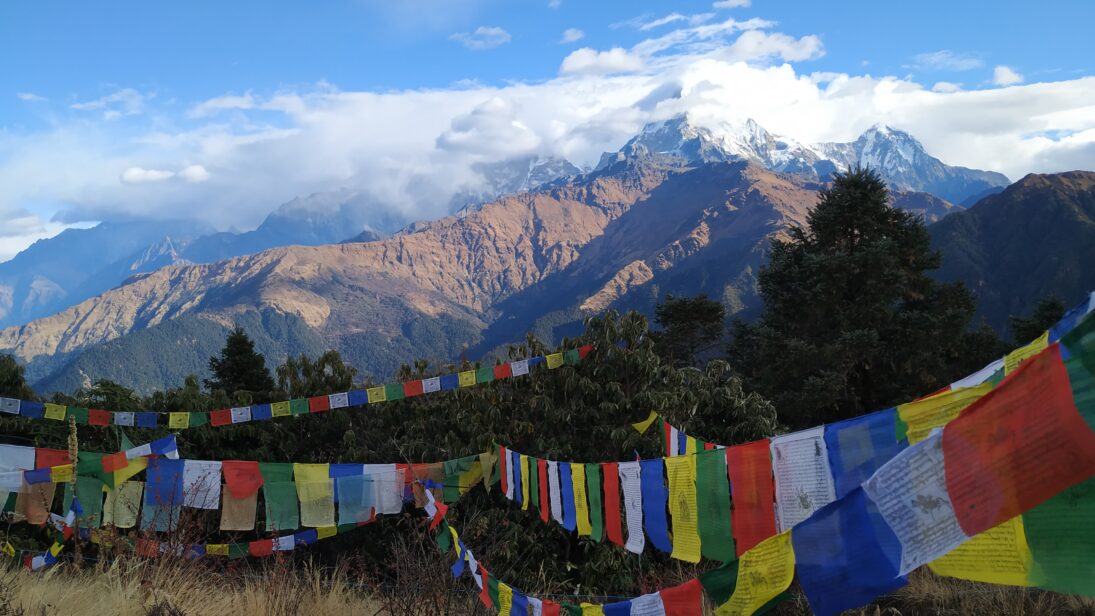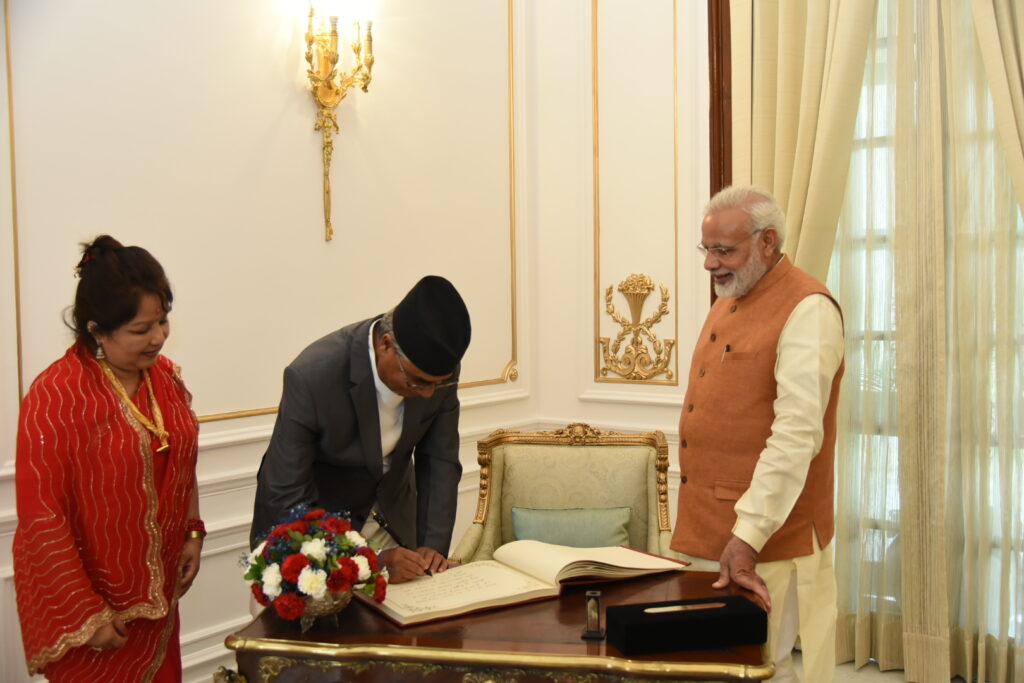
by Kamal Dev Bhattarai
In 2023, Nepal experienced relative stability in both domestic and foreign spheres. Unlike previous years, the domestic landscape was primarily dominated by economic issues while the fragile coalition government remained comparatively stable. Additionally, the government opened investigations into big corruption scandals, creating ripples in national politics as popular figures were arrested.
On the external front, the government avoided key contentious issues with India, China, and the United States, to focus on its economic and development agenda. Russia too showed interest in stepping up economic engagement with Kathmandu. Similarly, middle-powers like South Korea, Australia, and the United Kingdom increased their strategic engagement with Nepal instead of a pure development approach as in the past. The United States and its middle power allies sought to heighten engagement with Kathmandu to limit Chinese influence in the country, which was a key driver of Nepal’s foreign policy engagements in 2023.
Domestic Politics Stable but Economy Suffers
In December 2022, Nepal formed a new coalition government under Maoist leader Pushpa Kamal Dahal. Initially, Dahal’s Communist Party of Nepal (CPN), which emerged third in the national elections, signed a power-sharing deal with the Unified Marxist-Leninist party (UML) to form the government, but later switched to a coalition with the Nepali Congress (NC), a democratic socialist party. Till now, there have been no significant threats to the government, though efforts are underway to bring the NC and UML together to replace the current government.
Without Dahal providing a rationale, this change left analysts guessing that the hand of foreign powers was behind this shift. New Delhi and Washington seem comfortable with the current coalition since a CPN-UML coalition would make a powerful communist government, and there are fears that this government would tilt toward Beijing.
On the other hand, 2023 was characterized by images of young crowds set to fly abroad to find employment, and several street protests by loan-shark victims, farmers, and school teachers impacted by the worsening economy. This year, Nepal plunged into its first recession in six decades. COVID-19 shocks, the government’s decision to ban the import of luxury goods to save reserves, and dismal capital expenditures triggered this economic crisis. Inflation remained at eight percent and there has been no progress on job creation. While an increased flow of remittances and growth in the tourism sector helped grow the country’s exchange reserve, Nepal continued to struggle economically.
Growing economic woes are causing anger among people, providing a breeding ground for regressive forces that aim to overturn the system. Those forces have tried to exploit people’s grievances to advance their political interests. Adding to public anger in 2023 were two big corruption scandals in which major political parties were allegedly involved. In the fake refugee scandal and the Lalita Niwas land grab, top politicians and scores of high-level government officials were arrested despite parties attempting to intervene in order to protect their officials. Nepal ranked in 110th in the corruption perception index in 2023 and there are reports that with the adaptation of federal structures, local bodies too are reporting increased corruptions.
Balancing Major Powers and Avoiding Contentious Issues
In 2023, Dahal visited India, the United States, and China, and participated in meetings with several multilateral organizations. In each of these visits, Dahal prioritized his developmental agenda. For instance, during his visit to India in June 2023, Dahal avoided discussing bilateral issues around the map row that erupted in 2020, the 1950 Peace and Friendship Treaty, and Nepal’s contention around India’s Agnipath scheme.
Instead, Dahal’s visit secured regional energy trade, with India increasing its clean energy imports from Nepal and agreeing to provide a route for Nepali export of electricity to Bangladesh. This increase is mitigating the growing trade imbalance between Nepal and India, with Nepal selling electricity worth USD $1.3 million daily. Additionally, this year saw a major shift in Nepal’s hydropower sector, as India maintained a full monopoly in Nepal’s hydropower, upsetting Chinese investors. India has imposed a rule that it will not buy electricity from hydropower projects in which there is Chinese investment.
Dahal applied the same approach during his official visit to China in September. For the past three years, China has been pressing Nepal to make substantial progress on the Belt and Road Initiative and its newly-proposed initiatives — Global Security Initiatives (GSI), Global Civilizational Initiatives (GCI), and Global Development Initiatives (GDI). Dahal was unwilling to make progress on BRI, not only to avoid upsetting New Delhi but also because Nepal was not able to take high-interest rate loans during a recession. Nevertheless, he tried to appease China in other areas, such as standing against Taiwan’s independence, which kicked off a short-lived debate in Kathmandu.

Similarly, Dahal did not raise the alleged border dispute with China in 2023. This was a major irritant in Sino-Nepali relations under the previous Deuba-led government, as he frequently raised the issue and even formed a panel to address it, ensuring that it was covered by international media. However, this year saw the opening of more border points between Nepal and China and the resumption of flights between the two countries. Similarly, China has expanded its engagement with Nepal through collaboration between the two judiciaries and cooperation between the National Planning Commissions of both countries, though further details on this cooperation are not publicly available.
There was also an increase in collaboration between Nepal and the United States. During his UN Assembly trip in September, Dahal held talks with U.S. officials, and Washington also invited Nepal’s Foreign Minister Narayan Prakash Saud for a rare official visit in October. He held bilateral talks with his American counterpart Secretary of State Antony Blinken and met with other officials from the Millennium Challenge Corporation (MCC), USAID, and the International Financial Corporation. The MCC project — which communist parties objected to for the last four years due to its supposed military components — finally entered the implementation stage. Similarly, the United States increased its assistance in Nepal through USAID and launched several new development initiatives, such as the Global Health Security System and five-year agriculture projects. Washington also continued to invite Nepal to its Democracy Summit, despite the installation of a Maoist leader.
The Dahal-led government also tried to build cordial ties with Russia, though it voted in favor of Ukraine in the UN in 2023. After the vote, Russia proposed to deliver helicopters, increase the scholarship quota to Nepali students, and has opened a fertilizer plant in Nepal. Dahal has also expressed his readiness to host Russian President Vladimir Putin in Kathmandu in the new year. Nepal has maintained its non-alignment policy since the Cold War, but when Nepal voted in favor of Ukraine, opposition parties and foreign policy watchers criticized the government for deviating from its non-alignment policy. Of late, relations have soured after Russia recruited Nepali nationals to its army without informing the Nepali government and deploying them in the war with Ukraine.
Overall, Dahal’s foreign policy approach in 2023 was, in part, driven by his domestic policy goals of bringing about economic stability. He avoided contentious issues with major powers to harness these partnerships for his developmental goals. Given the deep influence of India in Nepal’s domestic policy, Dahal chose the approach of appeasing New Delhi, evidenced through his visits to India’s Hindu temples. With China, he took a cautious approach because New Delhi and Washington are closely watching his engagement with Beijing. The three-time prime minister may have thought that tilting toward Beijing may threaten the stability of his coalition.
Way forward
It is worth noting that as Nepal’s economic condition deteriorates, it should be careful while taking loans for big infrastructural projects, either from international financial institutions or from other countries. In the coming year, Dahal’s priority should be to address the country’s severe economic issues because a failure to tackle them may pose a threat to his regime as well as the 2015 Constitution. He can only achieve this through creating jobs, addressing the victims of various vulnerable sectors, and maintaining good governance through effectively curbing corruption.
To achieve this domestic stability, Nepal should continue to adhere to the policy of non-alignment on the external front, so that its economic engagement with all countries can remain intact. India, China, and the United States may attempt to drag Nepal into their geopolitical confrontations, but Kathmandu should refrain from taking sides and center its development and prosperity.
